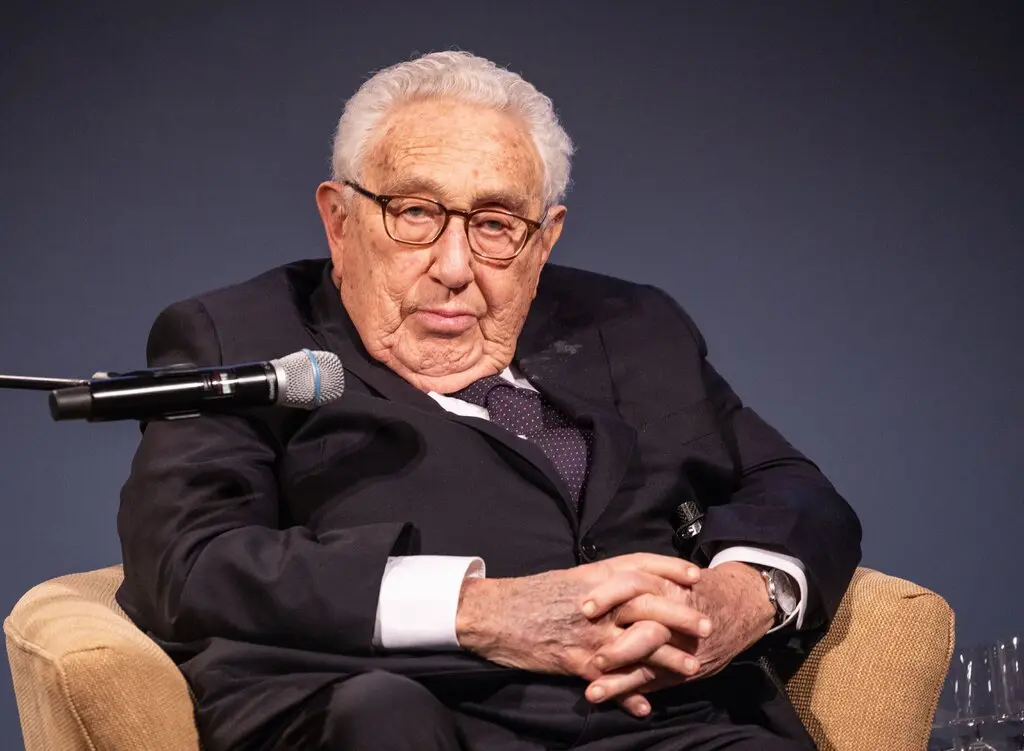Commentary
The praise being piled on Henry Kissinger after his passing was beginning to weigh on me as I had an occasion to learn something about him not generally known
Having been taught not to speak ill of the dead, I hesitated writing what I had learned about Kissinger, because it wasn’t kind. However, as time passed, the critics emerged.
In an initial column, the Wall Street Journal editorial board noted lightly, “These pages sometimes disagreed with Kissinger.”
Even later, the Journal editorial board’s major review was devoid of criticism, only mentioning that he had critics, and concluded its column, “Henry A. Kissinger, 1923-2023,” with “America was lucky to have him, as he was to have America.”
In addition to an embarrassingly long obituary, the New York Times, carried a fairly straight forward lengthy piece, in which it made note of “critics assailing his foreign policy actions in Vietnam and elsewhere around the globe as murderous.”
Days later, in “Ask Brutalized Cambodians What They Think of Kissinger,” a guest essay by Nick Turse, he wrote, “Kissinger was never held to account for the suffering, in Cambodia or In other countries where his brand of realpolitik was employed.
“Since his death, voices of the victims of his foreign policy have been absent from the many remembrances, reminiscences and obituaries. They need to be heard.
“For 50 years, Mr. Kissinger evaded responsibility for the trauma visited on Tropeang Phlong, and so many other villages in Cambodia. He shouldn’t be allowed to do so in death.
“The chief architect of their agony was Henry Kissinger, once named the most admired man in America.”
With that, I decided to share what I had learned about Kissinger.
It began in 2013, when we were living in Texas, and I got to know Richard Hilton, a highly-decorated retired Air Force colonel, who asked me if I would be willing to help him publish a book about his flying career. He had documented much of his experiences, and needed some editing help. I agreed, and in 2014 he published, “There Are No Sundays: A Youngster from Oklahoma Finds a Home in High Performance Jet Fighters.”
Hilton, who piloted F-4C Phantom jets in Vietnam, wrote of the indecision on bombing up the chain of command and the hope that with Lyndon Johnson and Robert McNamara gone, and with Richard Nixon now president, and a new team calling plays, a change of strategy would be forthcoming.
“That turned out to be wishful thinking on our part,” Hilton wrote. “The team was new, but conduct of the war was the same.”
He wrote of commanders in the field lobbying to be allowed to strike certain targets, but there was a formal procedure. After taking their requests through channels that wound up on the desk of the boss, a general or an admiral, and if he was satisfied, he would place a call to Kissinger, then Nixon’s national security advisor. “It may be an hour or days before a call would come from Kissinger with approval or denial,” Hilton noted.
Kissinger’s Micromanagement
Hilton cited an instance when White House micromanagement prevented a prime target from being hit, because Kissinger’s approval came days after the admiral’s request.
By then, bad weather had deteriorated over the target area calling for a delay, but Hilton heard Kissinger order “you vil go” and hit the target within the next three hours, and he was to be called with the results immediately.
Not knowing if the target was hit, Kissinger was notified the mission was successful. To the relief of the admiral and Hilton, there was no White House request for post-strike photos.
Kissinger Ruins a Career
When Kissinger came into the picture, there were crews that thought the rules of engagement had changed, and Hilton advised them that they hadn’t changed, relating that he heard Kissinger’s voice command – “totally controlling and arrogant” – that they could return fire when fired upon.
Hilton’s order to crews to keep accurate records turned out to be prescient. Unauthorized strikes in the North resulted in Seventh Air Force Commander Gen. John D. Lavelle being relieved of command and demoted though claiming to be acting on orders.
During testimony, Lavelle insisted he never exceeded his authority. He had followed the orders of the Joint Chiefs of Staff and Defense Secretary Laird, not knowing the order originated from Nixon.
Records later revealed that Lavelle was indeed acting on orders to conduct bombing missions in the North. Transcripts from Nixon’s Oval Office tapes revealed that he secretly authorized more aggressive bombing in North Vietnam.
Knowingly having given secret orders to bomb in the North, Nixon told Kissinger on June 14, 1972, “I don’t want him (Lavelle) to be a goat goddamit. Frankly, Henry, I don’t feel right about our pushing him into this thing and then, and then giving him a bad rap. I don’t want to hurt an innocent man.”
However, recalling the uneasiness of voters and Congress over the war, Hilton wrote that on June 29, Nixon chose not to stand up publicly for the general.
Through his relationships in the Pentagon, Hilton learned later that Kissinger was behind the orders that did in Lavelle.
In August 2010, 30 years after Lavelle’s death, former President Obama ordered Lavelle’s honor and rank be restored.
Kissinger will go down in history as being highly regarded, influential in advising U.S. presidents and other officials on foreign policy, but as is often revealed in the passing of leaders, we find that they, too, have an underbelly.
In relating Hilton’s remembrances, I felt it important that another view of Kissinger, the man, be brought forward.
May God continue to bless the United States of America






